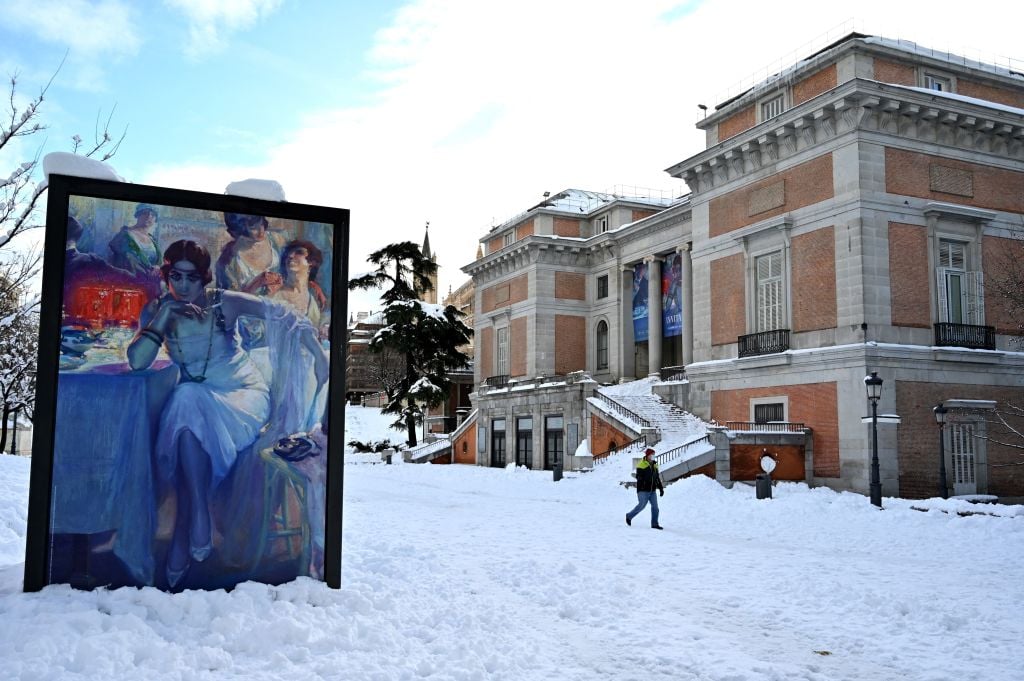
Madrid’s Museo del Prado will overhaul its permanent collection this year with an eye toward inclusivity and better representation of women artists.
The news came via museum director Miguel Falomir at a press conference yesterday and follows numerous calls from the public for the institution to diversify its offerings. Growing the footprint of women artists will be a priority for new acquisitions, Falomir said, and the museum will launch a new research grant dedicated to gender issues.
“One of the few positives consequences” of the pandemic, the director said, is that it has given the Prado time to take a hard look at its collection. He noted that many of the museum’s exhibition spaces “perpetuated 19th-century historiographical models.”
The first area of the museum to receive new treatment will be the museum’s 19th-century collection, with updates likely in place by this summer.
As for the rest of the plans, which will impact the institution’s holdings of work from 18th-century Europe and its Goya collection, Falomir told El Mundo that it’s too “early to give dates of when this process will be completed.”
“We depend, like everyone else, on the ups and downs of the moment we are in,” he said.
The museum will also aim to broaden its presentation of movements heretofore unrepresented in the collection, as well as art from countries outside of Europe.
“Social painting, with some exceptions, is almost absent,” Falomir said, according to the Spanish newspaper El Pais. Another area where the museum may refocus its attention is on Filipino art, which “is very relevant and is very poorly represented. We are going to be very attentive to artistic phenomena that should have a presence in the Prado.”
Director of the Prado Museum, Miguel Falomir, poses at the Prado Museum on June 4, 2020 in Madrid. Photo: Gabriel Bouys / AFP via Getty Images.
The debate over the representation of women has long dogged the Prado, and it was reignited last year with “Uninvited Guests,” a show that investigated the treatment of women artists in Spain during the 19th and early 20th centuries. The exhibition featured more artworks by men than women, and even misattributed one man-made painting to a woman.
Critics said that the exhibition recapitulated the same misogyny of the era that it attempted to expose.
“The Prado has failed in its fundamental role as a bastion of the symbolic values of a democratic and equal society,” wrote eight women art professionals in an open letter to the museum at the time.
For his part, Falomir says the newly announced overhaul is about more than just responding to the criticisms of this show, which is on view through mid-March.
“It’s obvious that some of the lessons of ‘Uninvited Guests’ will be brought to the collection and we’ll try to give a more plural vision of what the Spanish 19th century was,” he explained. “As I’ve often said, it’s not just a question of gender—although women have certainly been excluded from the museum’s permanent collection and its exhibitions.”
Representatives from the Prado did not immediately respond to a request for comment.